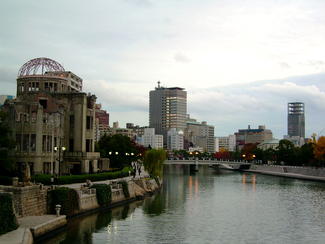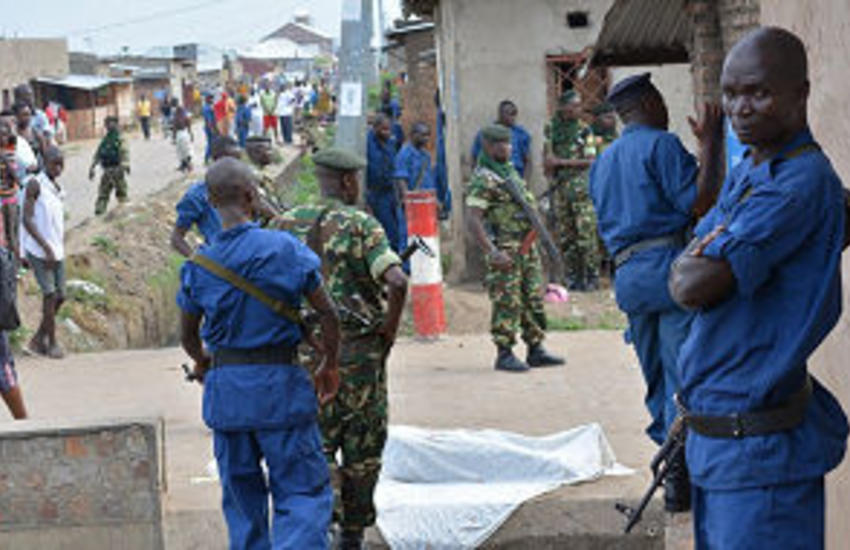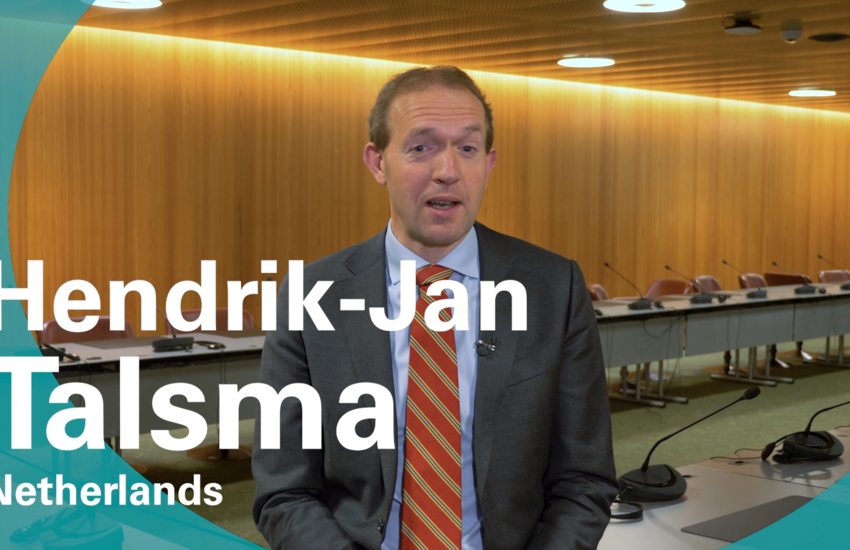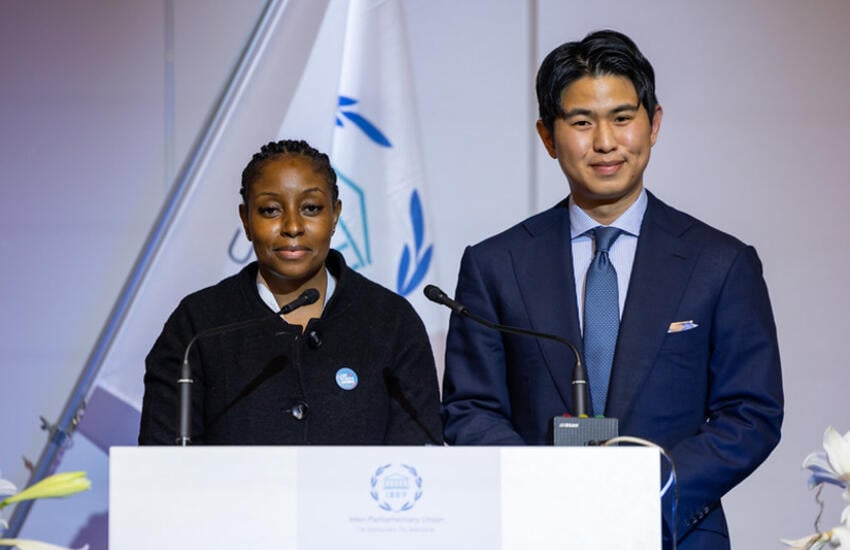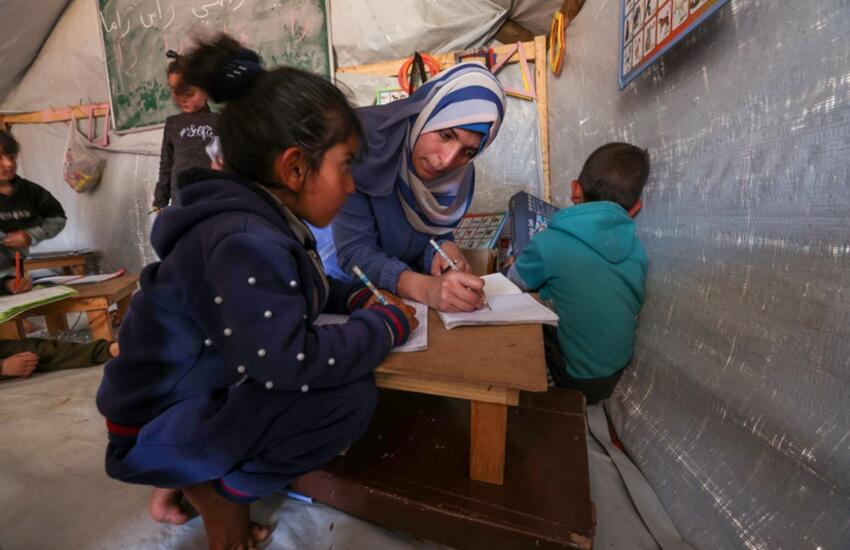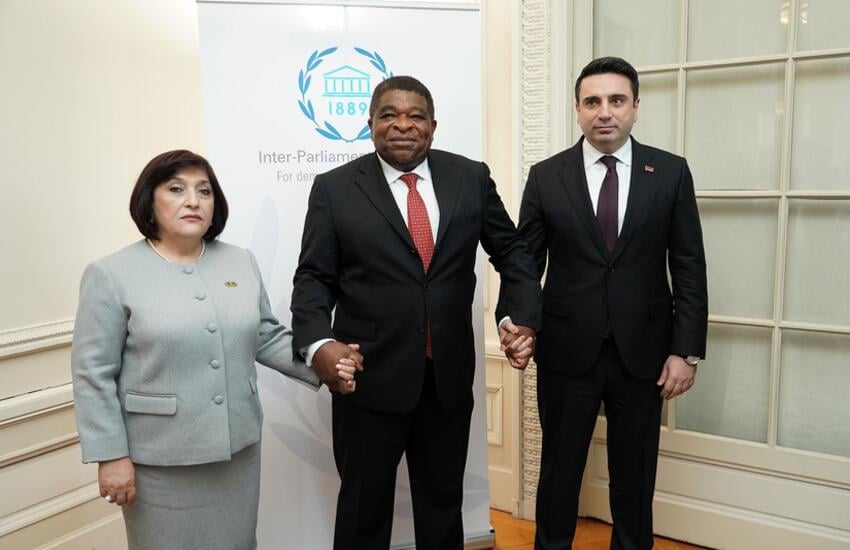The Hiroshima Peace Memorial Ceremony, held each year since 1947 at the Hiroshima Peace Memorial Park, brings together 50,000 local citizens, visitors, and dignitaries from all over the world. They gather to commemorate the 140,000 people instantly killed by an atomic bomb at 8.15 on the morning of 6 August 1945. They also come to pray for lasting world peace.
To that end, the IPU continues to diligently support parliamentarians around the globe to do more to abolish nuclear weapons. The concerted effort is driven by Members, and includes developing parliamentary tools to engage MPs on nuclear disarmament and non‑proliferation issues:
1. Supporting Nuclear Non-Proliferation and Disarmament: a handbook for parliamentarians
The IPU’s commitment to disarmament is part of its overall mission to promote peace, security and global governance. Here are some of the great efforts the world has made so far:
Treaty on the Non-Proliferation of Nuclear Weapons (NPT)
The NPT is a landmark international treaty whose objectives are to prevent the spread of nuclear weapons and weapons technology, to promote cooperation in the peaceful use of nuclear energy, and to further the goal of achieving nuclear disarmament and general and complete disarmament. The Treaty is the only multilateral binding commitment to disarmament that the nuclear‑weapon States have made. The Treaty was opened for signature in 1968, entered into force in 1970 and was extended indefinitely in 1995. A total of 191 States have ratified the Treaty, including the five nuclear‑weapon States. More countries have ratified the NPT than any other arms‑limitation and disarmament agreement.
Treaty on the Prohibition of Nuclear Weapons (TPNW)
The TPNW includes a comprehensive set of prohibitions on participating in any nuclear‑weapons activities. These include undertakings not to develop, test, produce, acquire, possess, stockpile, use or threaten to use nuclear weapons. The Treaty also prohibits the deployment of nuclear weapons on national territory and the provision of assistance to any State in the conduct of prohibited activities. The Treaty obliges States parties to provide adequate assistance to individuals affected by the use or testing of nuclear weapons, as well as to take necessary and appropriate environmental remediation measures in areas contaminated because of activities related to the testing or use of nuclear weapons.
The TPNW was adopted by the United Nations on 7 July 2017, after decades of discussions by IPU Member Parliaments. Following ratification by the 50th State on 24 October 2020, it entered into force on 22 January 2021. The IPU issued a statement to celebrate the Treaty’s entry into force, which sets a new international norm whereby the development, possession and use of nuclear weapons are not only immoral, unethical and inhuman, but are now also illegal.
Comprehensive Nuclear‑Test‑Ban Treaty (CTBT)
Despite these successes, much work remains to be done. The CTBT was originally adopted by the United Nations General Assembly on 10 September 1996. Since then, 185 States have signed, and 170 have ratified it. However, there are 44 nuclear technology holder countries that must sign and ratify before the CTBT can enter into force. Eight of these countries are still missing. The Comprehensive Nuclear‑Test-Ban Treaty Organization (CTBTO) directs the global effort to enforce this treaty.
To maintain the focus on what still needs to be done to achieve enforcement, in 2009 the United Nations declared 29 August to be the International Day against Nuclear Tests. The resolution was initiated by Kazakhstan to commemorate the closure of the Semipalatinsk nuclear test site on 29 August 1991. This was also the day on which the Soviet Union conducted its first nuclear test in 1949.
The IPU campaigns alongside global partners, including CTBTO and the International Campaign to Abolish Nuclear Weapons (ICAN), to encourage parliaments to ratify the main disarmament treaties – NPT, TPNW and CTBT. Members of national and regional parliaments have been consistently interested in disarmament and the related work of the IPU and United Nations. Concrete results have been achieved, as reflected in the 2020 IPU Impact Report and the 2020 UN General Assembly report of the Secretary‑General on the interaction between the United Nations, parliaments and the IPU.
Reducing nuclear‑weapons capacities would allow for a decrease in military spending and a possible reallocation of funding to areas such as health or education as part of post‑covid recovery efforts. Members debated these sorts of opportunities to build back better at the recent 142nd IPU Assembly. It is vital that parliaments and MPs ensure that existing treaties and conventions are signed and honoured, and of paramount importance that the CTBT enters into force.
The IPU staunchly advocates the strengthening of the NPT regime, and calls on all governments involved to finish what they have started, reduce their nuclear armament capacities, and work towards disarmament.





